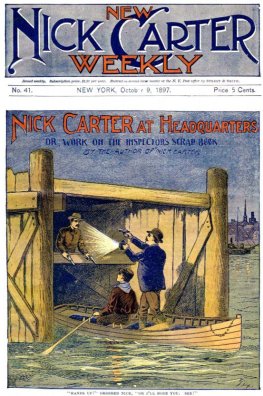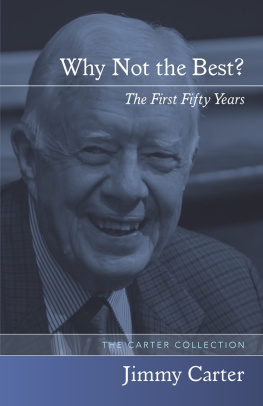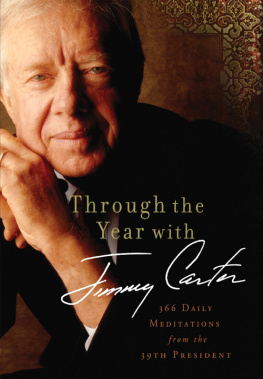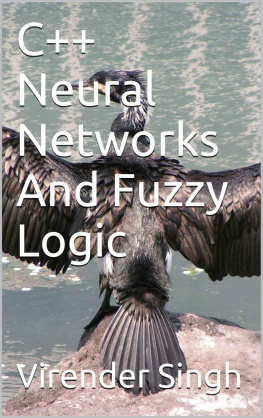Jenny Carter - Fuzzy Logic(2021)[Carter et al][9783030664749]
Here you can read online Jenny Carter - Fuzzy Logic(2021)[Carter et al][9783030664749] full text of the book (entire story) in english for free. Download pdf and epub, get meaning, cover and reviews about this ebook. year: 2021, publisher: Springer International Publishing, genre: Children. Description of the work, (preface) as well as reviews are available. Best literature library LitArk.com created for fans of good reading and offers a wide selection of genres:
Romance novel
Science fiction
Adventure
Detective
Science
History
Home and family
Prose
Art
Politics
Computer
Non-fiction
Religion
Business
Children
Humor
Choose a favorite category and find really read worthwhile books. Enjoy immersion in the world of imagination, feel the emotions of the characters or learn something new for yourself, make an fascinating discovery.
- Book:Fuzzy Logic(2021)[Carter et al][9783030664749]
- Author:
- Publisher:Springer International Publishing
- Genre:
- Year:2021
- Rating:4 / 5
- Favourites:Add to favourites
- Your mark:
- 80
- 1
- 2
- 3
- 4
- 5
Fuzzy Logic(2021)[Carter et al][9783030664749]: summary, description and annotation
We offer to read an annotation, description, summary or preface (depends on what the author of the book "Fuzzy Logic(2021)[Carter et al][9783030664749]" wrote himself). If you haven't found the necessary information about the book — write in the comments, we will try to find it.
Fuzzy Logic(2021)[Carter et al][9783030664749] — read online for free the complete book (whole text) full work
Below is the text of the book, divided by pages. System saving the place of the last page read, allows you to conveniently read the book "Fuzzy Logic(2021)[Carter et al][9783030664749]" online for free, without having to search again every time where you left off. Put a bookmark, and you can go to the page where you finished reading at any time.
Font size:
Interval:
Bookmark:
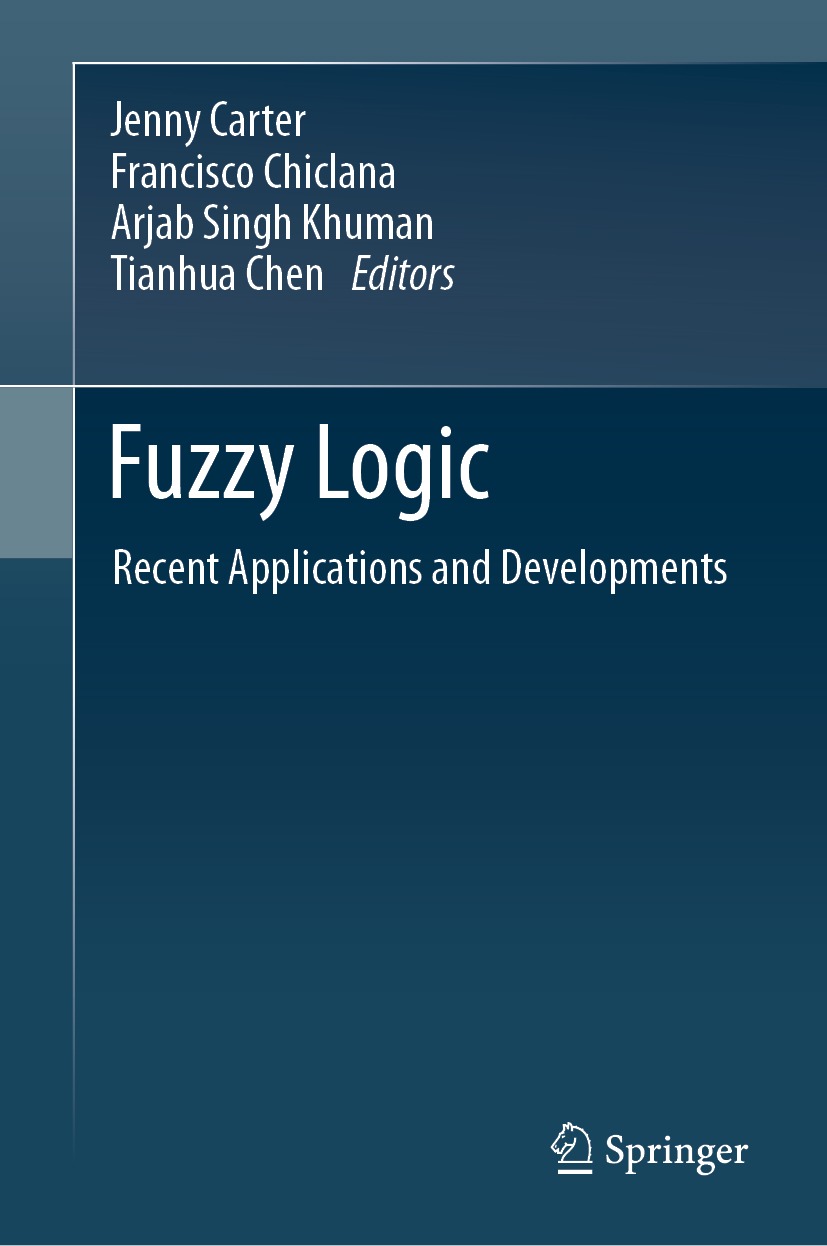

This Springer imprint is published by the registered company Springer Nature Switzerland AG
The registered company address is: Gewerbestrasse 11, 6330 Cham, Switzerland
Many problems within industry and commerce can be modelled mathematically and/or statistically. However, in practice, applications modelled in this way often perform poorly. Implemented assumptions can cause developed solutions to lack a certain level of robustness. Standard control applications, for example, often work poorly under certain conditions or they are not smooth in their movement. Physical measurements are, by their nature, imprecise. They are only as good as the instrument doing the measuring. A 2 Kg bag of sugar is never exactly 2 Kg for example. Yet, traditional mathematically based control solutions use such measurements as being precise. Experts make decisions with imprecise data in an uncertain world. They work with knowledge that is rarely defined mathematically or algorithmically but uses vague terminology with words.
Fuzzy logic relies on the concept of a fuzzy set, which was proposed by Lotfi Zadeh, in his 1965 seminal paperFuzzy Sets (published in Information and Control, volume 8, pp. 338353). Zadeh was a Professor at the University of Southern California until his death in 2017. The idea of fuzzy sets described in his seminal work lays the basis for Fuzzy Logic. Fuzzy Logic is particularly good at handling uncertainty, vagueness and imprecision. This is very useful where a problem can be described linguistically (using words) or, as with neural networks, where there is data and you are looking for relationships or patterns within that data. Fuzzy Logic uses imprecision to provide robust solutions to problems. Applications of fuzzy logic are varied and include robotics, washing machine control, nuclear reactors, information retrieval, train scheduling, system modelling, camera focus, stock tracking.
The chapters in this book provide further insight into the wide range of approaches to problem-solving using fuzzy logic and illustrate these approaches over a wide variety of application areas.
The Editors
Fuzzy logic arises from an attempt to manage the inherent vagueness there is in the language we use when discussing our worldit is a formal treatment of vague predicates. This chapter will describe how this formal structure has come about, from origins in philosophical thought, through the development of non-standard logics. It will explore, from a logicians perspective, useful tools using fuzzy set theories, such as Basic Fuzzy Logic (BL) and T-Norm Fuzzy logics, deployed in computer systems today. It is intended to detail the techniques used to set up such theories and to review the relationship that Logic bears to them. In conclusion, it is proposed that further suggested theoretical investigations might yield useful practical results.
The subject of this chapter is the foundations of Fuzzy Set Theory and Fuzzy Logic. When applying techniques in computer science it is not necessary to know their historical development. Like driving a car, it is not necessary to understand the workings of the internal combustion engine. On the other hand, understanding engines and their history can enhance our driving experience and one gains a broader appreciation of the car as an object created by human endeavour. Similarly, when we stand back and view Fuzzy Logic from a historical perspective, by examining its foundations we gain an overview that increases our ability to see relationships, and allows us to explore options for future innovation. This chapter is intended to give the reader a path through the literature to help gain a historical perspective. This is not intended to be a comprehensive review, rather to inspire further reading; [] a single source text covering the historical development of Fuzzy Set Theory and Fuzzy Logic, is a good place to start. My conclusions propose some blue sky ideas which are ultimately intended to pique interest and encourage further thought. As with so many other subjects, it all starts with the Greeks and Aristotle.
Font size:
Interval:
Bookmark:
Similar books «Fuzzy Logic(2021)[Carter et al][9783030664749]»
Look at similar books to Fuzzy Logic(2021)[Carter et al][9783030664749]. We have selected literature similar in name and meaning in the hope of providing readers with more options to find new, interesting, not yet read works.
Discussion, reviews of the book Fuzzy Logic(2021)[Carter et al][9783030664749] and just readers' own opinions. Leave your comments, write what you think about the work, its meaning or the main characters. Specify what exactly you liked and what you didn't like, and why you think so.

![Jenny Carter Fuzzy Logic(2021)[Carter et al][9783030664749]](/uploads/posts/book/265335/thumbs/jenny-carter-fuzzy-logic-2021-carter-et.jpg)
